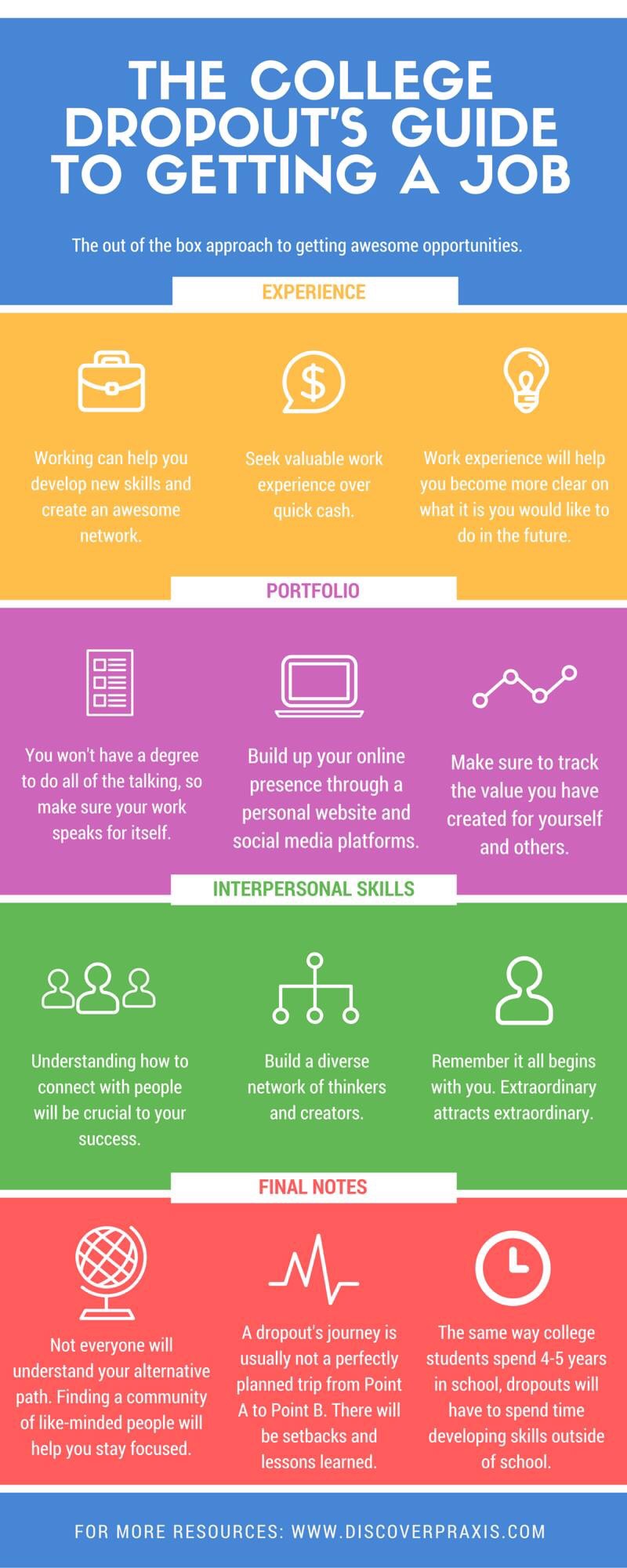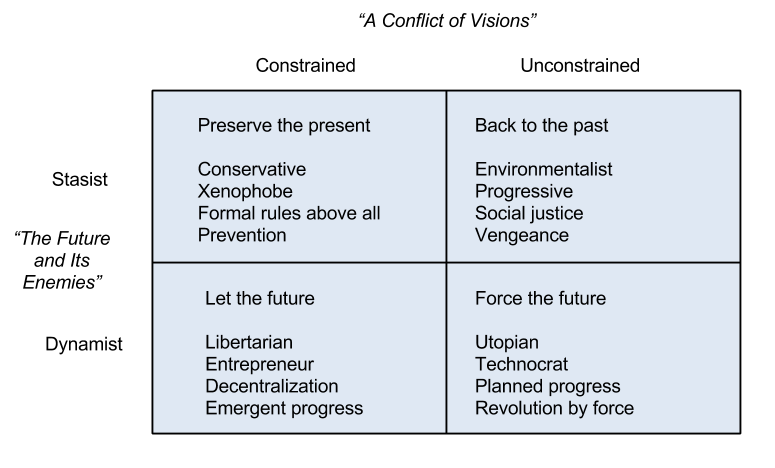In just two weeks it will mark three years from the day the first Praxis website went live and the first person applied for the program. It seemed a good time to give a longish recap on what we’re all about, what we’ve been building, and what it’s resulted in so far.
This includes bits of blog posts and updates written over the past few years that reflect the deepest, most important and enduring reasons why we do what we do.
We started with nothing but an idea so powerful it demanded action. Action is scary. Action is unknown. Action is prone to failure and accountable to results. Action can be nitpicked and potshotted. Action is also the only way to turn ideas into a powerful force for change.
We didn’t start with a pristine plan or perfect path to execution. We started with a dogged, enthusiastic commitment to create something new and bold and big to change lives and life itself.
We didn’t start Praxis because we think college is bad, or because we want to convince people it is. We didn’t start it to be hip and trendy and “disruptive”. We didn’t start it because we want to point out problems with the world. We started it because we want to create value for individuals.
There are a lot of young people hungry for valuable experiences and not finding them. There are a lot of young people unhappy with the education, career, and life options they see before them, searching for something more. Praxis exists for you.
Praxis is more than a program or a company to me. It’s the embodiment of a mindset and a way of life. It is a tangible way to help people live free, self-directed lives. It’s a community and a set of resources and ideas and businesses and participants built around the understanding that no conveyor belt can lead you to the life you want, and no structure you don’t choose and create yourself will bring you fulfillment.
Praxis is a concrete opportunity, not a vague notion. It offers an interesting, challenging, amazing job and an interesting, challenging, amazing self-guided educational experience, all with a relentless focus on deliverable results. It’s a recognition that your life will be determined by the quality of your product more than the pedigree of your paper. It’s a way to remove the fear and doubt and strictures of the linear ladder to imagined success. It’s a way to reveal and fan into flame the deep human love of adventure, play, possibility, and experimentation.
I don’t believe doing things you don’t like and hoping it leads to unspecified things you do like is a recipe for success. Praxis pushes you to define what you don’t like and what you do, to learn what you’re good at and what you’re not, to identify definite outcomes you wish to achieve and definite causality between those outcomes and your desired next step. Praxis does not ask you to learn things or perform tasks in the hope that it will get you work experience, we give you that work experience from the start. You cannot separate learning from doing.
Praxis is a recognition that, wherever you get your paycheck, you are your own firm. The future does not belong to those who follow orders, but those who solve problems with creativity. The future belongs to entrepreneurs, whether founders or builders within firms. Entrepreneurial thinking and acting cannot be learned from study, but must be practiced. Praxis exists to put those eager to learn it into environments right now – not tomorrow, not after more study and certification – where they can be around and become entrepreneurs.
Praxis exists to offer a valuable service to young people who are searching for a way to build their confidence, skills, experience, network, and knowledge. Praxis is built upon questions like, “Why not now?”, and “Why not me?”
Praxis is about that powerful combination of big picture dreamers and blue-collar doers. It’s all the imagination of Silicon Valley startups with all the work-ethic of Midwestern small businesses. It’s grit plus grind plus greatness. Praxis is the realization that the most radical thing you can do is often the most practical, and that the most practical thing you can do is sometimes be radical.
Praxis is an idea. The idea is simple. Find the best way to get from where you are to where you want to be. If we can help you do that better and faster with a great job that comes with a great education and community, jump in. If not, we’ll still be rooting for you every step of the way.
We didn’t start Praxis to make enemies or to make friends. We started it to create value. We started it because the idea was so powerful we had no choice but to bring it into the world. We started it because theorizing about ways young people could build their lives wasn’t enough. We started it because it’s fun, fulfilling, and harder than anything I’ve ever done. I wouldn’t have it any other way.
When we created Praxis we did it to fill a large and growing gap in the option set facing young people. So many smart, ambitious, curious individuals are languishing in fluorescently-lit cinder-block classrooms. Bored. Racking up debt. For no clear purpose.
The myth they are steeped in is that they have to do this. There is no choice. The options are presented: Be a loser, or sit around for 4-6 years at a cost of tens of thousands.
But the myth goes deeper.
The myth is that learning itself, and by extension self-improvement, are terrible, boring, passionless and must necessarily be enforced by bureaucrats and self-proclaimed authorities. Your job, if you want to succeed in life (by who’s definition anyway?) is to follow the rules, memorize the disconnected facts, take the tests, pad the resume, apply for the jobs, and wait for the conveyor belt to drop you off at ‘normal’.
How depressing and frustrating this is to so many of the best and brightest.
We set out to cut through the crap. We wanted these talented young people to stop waiting for real life and to jump into amazing work experiences at amazing companies eager for their help. We wanted them to shatter the old paradigm of education and start fresh, like newborns do, exploring questions that matter to them, creating their own challenges and structure, diving into a rigorous self-improvement project.
The mindset is simple and powerful. Awaken your inner entrepreneur. You own your life. You own your education. You own your career. You are the driving force in your own process of creation. Do things for the results you value, not the hoops arbitrarily placed before you.
We wanted this entire life-shifting experience to take place in the span of a single year and for a net cost of zero.
I received this email from current Praxis participant Mitchell Earl. It beautifully illustrates the mindset shift.
“If I had to estimate, I’d say I skipped class 2/3 of the time in college. I don’t sit still well. I couldn’t learn in that type of environment. I need to be stimulated. When I did go to class, I used to take the daily puzzles; either crosswords or sudokus because I needed something to direct my nervous energy toward if I was going to be forced to sit and listen to someone talk at me. I can’t even count the number of times I had a professor yank my newspaper away from me IN COLLEGE.
In my web design class, the syllabus alone put a burr under my saddle reading, “One absence is considered excessive for the course.” I redefined excessive. I turned in my work on time, but I refused to go sit in a classroom and be told how or what to code, design, or write. That’s not how I learn.
I didn’t and don’t want my work to be like grocery store milk, micro-filtered, ultra-pasteurized, standardized, and homogenized. For me to do my best work, I need to have the freedom to explore my creativity. Praxis has shown me that. It’s given me the freedom to explore my own needs as a learner. No one is yanking my puzzle away telling me to pay attention. No one is telling me how to learn. No one is shaming my individuality. With Praxis, I’m free to be me.”
Yes. That’s exactly it Mitchell. We set out to create more freedom. To help you carve out a space, to break the other-imposed mold, and plot your own path to fulfillment as you define it.
Freedom isn’t easy. It’s much harder work than just doing what everyone else wants and expects. It takes a lot of deep, philosophical thinking. It takes self-knowledge and self-honesty. It takes discipline and hard work. It takes tolerance of failure and the courage to put yourself in new situations, often over your head, and learn on the fly. It takes the humility to be in environments where you’re not the smartest person in the room. Your desire for personal growth must be strong enough to sustain these challenges.
Mitchell is tasting it. So are our other participants and grads. This is what we set out to do. And we’re doing it. One life at a time.
If you know anyone who sounds a lot like Mitchell was in school, give ’em a little nudge of encouragement to be free. Remind them the dominant path isn’t the only one, and the best paths are the ones they’ll blaze themselves. You can even send them my way and I’ll gladly talk with them about taking creative control of their education, career, and life, with or without Praxis.
Let’s awaken people’s dreams and increase the number of those who are truly living free.
Here’s the cool thing. Praxis grads are kicking ass. We have story after story of 17, 18, 20, 22, 25 year olds creating amazing results getting awesome jobs and blowing away their classroom bound peers.
What kind of results?
- Praxis grads are all employed.
- Their average salary is $50,287.
- 100% said Praxis helped them achieve a better career and life.
Now entering our third year, we’ve taken an even more dramatic and direct approach to creating value. We guarantee our graduates job offers at the startup where they get paid to apprentice.
We’re growing every month in applications, participants, business partners, graduates, and most of all young people with an unleashed approach to life.
It’s about individuals, not aggregates and average data. Still, if you want numbers, put it side by side with the typical path taken by most young people, pressured by parents and teachers who don’t bear the burden themselves:
Praxis
- Length: 9 months
- Cost: $12k tuition – $14,400 earnings during the program = ($2,400)
- Debt: $0
- Job after graduation: 100%
- Min. starting salary: $40k ($50k is the average)
- Net benefit over 5 years: $2,400 (in program) + $170,000 (min. pay, no raises for 4.25 years after graduation) = $172,400
College
- Length: 5+ years on average
- Cost: $100k (minimum)
- Debt: $37k average
- Job after graduation: ??? (82% of grads do not have a job lined up. 62% of degree holders have no job or a job that does not require a degree)
- Opportunity cost: $172,400 (assuming you had done Praxis instead)
- Net benefit over 5 years: -$37k debt -$172,400 opportunity cost = ($209,400)
We’re not done but just getting started. We are relentlessly committed to creating value for our young customers. We have to. We are directly, immediately accountable to them. That’s what the market does. We wouldn’t want to be shielded from it.
You can love us or hate us or ignore us or join us. It doesn’t really matter. What matters and what will always matter to us is helping those who want to act on their dreams and gain a massive head start on building a life they love.
That’s why we took this risk and created Praxis nearly three years ago. That’s why we’ve weathered the storms and criticism and risk and pain. That’s why we get excited about every amazing story and accomplishment by our participants and alumni.
Break the mold.
Isaac
Like this:
Like Loading...


